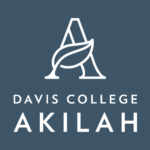DE conducted a detailed outcome evaluation for Davis College, focusing on the academic and employment outcomes of the 1,213 graduates from the 2019, 2020, and 2021 cohorts. This evaluation was designed for accountability and strategic learning, using lessons from previous assessments conducted in 2017 and 2020. It employed a mixed-methods approach, incorporating online surveys and both online and in-person focus groups, adapted due to ongoing Coronavirus-related restrictions and a move towards streamlining and anonymizing the process for scalability and increased participation.
The evaluation aimed to assess the relevance of Davis College’s programs to the needs of graduates and the labor market, as well as their effectiveness in fostering economic independence and leadership roles in various domains—workplace, community, and household. It specifically tracked employment outcomes over 6-, 12-, and 24-month intervals post-graduation. Importantly, this evaluation did not include a comparison group, focusing instead on developing a descriptive understanding of the program’s impact from the graduates’ perspectives.
The focus was structured around four specific objectives tied to the foundational goals of the Akilah Institute: achieving economic independence, demonstrating leadership at work, in communities, and within households. These objectives underscore the global and local significance of women’s education as a critical driver of economic growth and familial well-being, aligned with Sustainable Development Goals on education, gender equality, and economic growth. The findings from this evaluation are intended to refine Davis College’s theory of change and its ongoing contributions to these broader developmental objectives.

